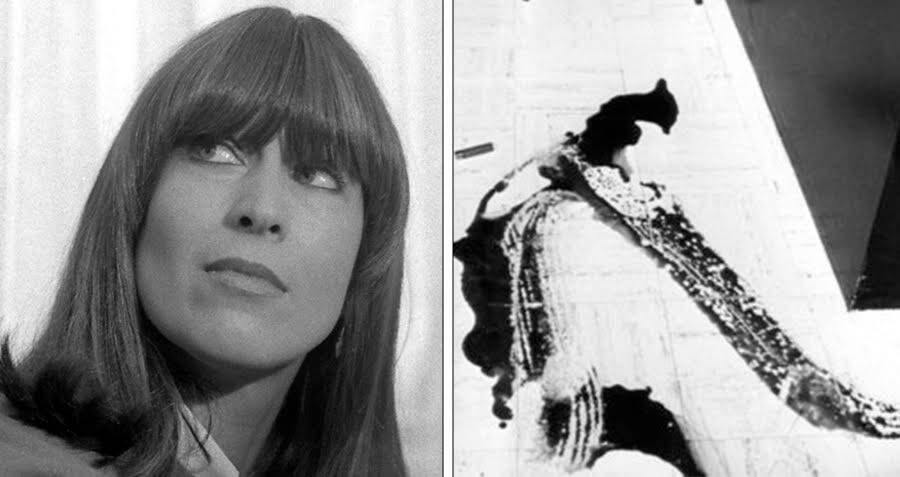The story of Marianne Bachmeier is, in a way, truly etched into Germany’s legal and cultural history. It's a name that, you know, still sparks conversations about sorrow, about what justice truly means, and about the deep emotional struggles that can lead to, well, very dramatic moments. On March 6, 1981, Marianne Bachmeier opened fire in a crowded courthouse in what was then known as West Germany. This act, so shocking and public, made headlines, actually, across the nation, as she sought revenge on the man accused of murdering her young daughter.
Her story, often simply called "der Fall" – "the case" – in Germany, remains one of the most heartbreaking and controversial tales in modern history, really. It’s about a journey from being, kind of, a struggling single mother to becoming a figure that symbolizes both profound grief and, in some respects, a very intense form of personal justice. This event, you see, threw a spotlight on the raw emotions involved when the legal system grapples with unspeakable loss.
What happened to Marianne Bachmeier, you might ask? Well, her actions that day in the Lübeck district court, room 157, at around 10 am, were nothing short of astonishing. She, in a way, took justice into her own hands, creating one of the most dramatic and emotionally charged moments in legal history. This article looks into the events surrounding that fateful day and, you know, the lasting impact of her actions.
Table of Contents
- Who Was Marianne Bachmeier? A Brief Biography
- Personal Details and Bio Data
- The Fateful Day: March 6, 1981
- A Mother's Desperate Act in the Courtroom
- The Aftermath and Public Opinion
- Frequently Asked Questions About Marianne Bachmeier
- Conclusion: A Legacy of Grief and Debate
Who Was Marianne Bachmeier? A Brief Biography
Marianne Bachmeier's early life was, you know, not without its challenges. She was, apparently, a struggling single mother, trying to make her way. The provided text doesn't give us many details about her life before the tragedy, but it's clear that the loss of her daughter changed everything for her. This event, in a way, transformed her from a private citizen into a public figure, a symbol of, well, a very specific kind of sorrow and defiance.
Her journey, you see, became intertwined with a national discussion about crime, punishment, and the role of personal emotion within the confines of the law. She wasn't, perhaps, seeking fame, but her actions certainly brought her into the spotlight, and her name, in a way, became synonymous with a mother's extreme response to unimaginable pain. It’s, kind of, a stark reminder of how deeply personal tragedies can ripple through society.
Personal Details and Bio Data
| Detail | Information |
|---|---|
| Name | Marianne Bachmeier |
| Date of Event | March 6, 1981 |
| Location of Event | Lübeck District Court, Room 157, West Germany |
| Role in Event | Mother who shot her daughter's accused murderer |
| Context | Revenge for her daughter's murder |
| Legacy | Symbol of grief, justice, emotional turmoil, legal debate |
The Fateful Day: March 6, 1981
The morning of March 6, 1981, was, in some respects, like any other day at the Lübeck district court. It was, apparently, the third day of the trial for the man accused of murdering Marianne Bachmeier's daughter. Around 10 am, Marianne Bachmeier, you know, entered the courtroom. She wore a long, heavy coat, and her head was held high, a posture that, perhaps, hinted at the profound determination she carried within her.
The courtroom, room 157, was, very likely, quite crowded, filled with people there to witness the proceedings. The atmosphere, one can only imagine, was tense, as trials of this nature often are. At the front of the room, the accused, a man named Grabowski, was present, his trial, of course, continuing. This particular day would, however, unfold in a way no one could have predicted, changing the course of legal history, pretty much.
A Mother's Desperate Act in the Courtroom
It was around 10 am, just as the proceedings were underway, that Marianne Bachmeier, you know, made her move. She had, apparently, smuggled a Beretta 70 pistol into the courtroom. This act alone shows a considerable amount of planning and, frankly, a very deep resolve. The tension in the room, which was already there, must have intensified dramatically in those moments leading up to her action, though no one knew what was coming.
Then, quite abruptly, she pulled the loaded weapon out of her purse. Without hesitation, she started shooting. The target was, of course, the man accused of murdering her daughter, Grabowski. This sudden, violent outburst in a place dedicated to legal process was, in a way, an almost unbelievable scene. It was, you know, a moment of raw, unfiltered emotion clashing head-on with the formal structure of the law. Her actions, in that very moment, captured the world's attention.
The Aftermath and Public Opinion
The immediate aftermath of Marianne Bachmeier's actions was, as you might expect, chaos and shock. The court proceedings, of course, came to an immediate halt. Her act of taking justice into her own hands sparked a massive public debate, not just in Germany, but also, pretty much, around the world. People were, you know, deeply divided in their opinions about what she did, and that division, actually, continues even today.
Was Marianne Bachmeier a mother driven to madness by grief, as some argued? Or was she, in some respects, a symbol of a flawed justice system that, perhaps, failed to protect the innocent, as others contended? Her story, even now, still divides opinion, which is, you know, quite remarkable. It brings up very uncomfortable questions about personal vengeance versus the rule of law, and about how society should respond when individuals feel utterly let down by the system. This case, in a way, became a touchstone for these very difficult conversations.
Frequently Asked Questions About Marianne Bachmeier
People often have many questions about this compelling case, and, you know, the human element at its core. Here are a few common inquiries that, in a way, get at the heart of the matter:
What exactly happened to Marianne Bachmeier on March 6, 1981?
On March 6, 1981, Marianne Bachmeier, as a matter of fact, entered a courtroom in Lübeck, West Germany, during the trial of the man accused of murdering her daughter. Around 10 am, she smuggled a Beretta 70 pistol into the courtroom and, quite abruptly, pulled it out of her purse and started shooting at the accused man. This dramatic act was, you know, her way of seeking revenge for her daughter's death.
Was Marianne Bachmeier seen as a mother driven to madness by grief, or a symbol of a flawed justice system?
Her story, actually, still divides opinion. Some people viewed Marianne Bachmeier as a mother driven to madness by her immense grief and sorrow over the loss of her child. Others, however, saw her as a powerful symbol of a justice system that, perhaps, failed to adequately protect the innocent, leading her to take matters into her own hands. It's, you know, a complex question with no easy answer, even today.
Why is Marianne Bachmeier's story still referenced as "der Fall" (the case)?
Marianne Bachmeier's story, often referenced as "der Fall," or "the case," is, in a way, etched in Germany’s legal and cultural history because of its profound impact. It symbolizes, you know, both the depths of grief and the controversial pursuit of personal justice. The emotional turmoil and the legal debates that followed her actions made it a landmark case, really, that continues to be discussed and analyzed, pretty much, for its ethical and societal implications.
Conclusion: A Legacy of Grief and Debate
The life of Marianne Bachmeier, and particularly the events of March 6, 1981, remains, in a way, one of the most heartbreaking and controversial stories in modern history. Her actions, born from an unimaginable personal tragedy, forced a society to grapple with very difficult questions about justice, revenge, and the boundaries of human emotion within the legal framework. It was, you know, a moment that highlighted the raw, visceral pain of loss and the desperate measures some might take when they feel all other avenues have failed.
Her story, in a way, continues to resonate because it touches upon universal themes of grief, accountability, and the search for fairness. It serves as a stark reminder of the human element behind every legal case, and how, sometimes, personal suffering can push individuals to acts that challenge the very foundations of law and order. For more insights into historical legal cases that sparked public debate, you can learn more about on our site, and also explore other significant events by linking to this page . You might also find more information on similar historical archives that detail such compelling events from the past, you know, like those found in major historical collections.



